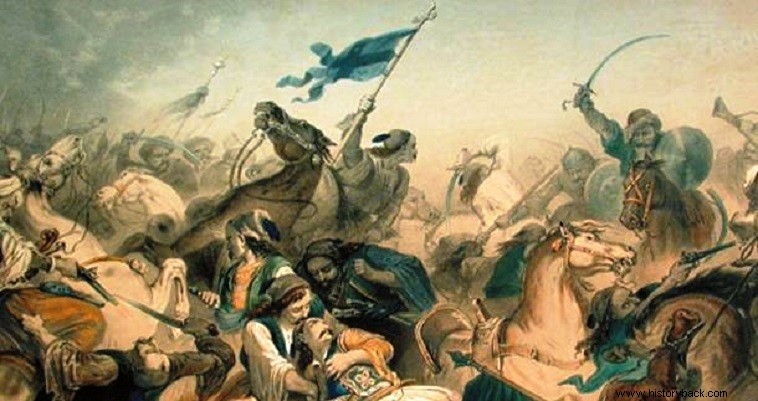
Lesser known aspects of the revolution in Macedonia that did not thrive but contributed in various directions to the struggle of Hellenism are presented by Iakovos Michaelidis, professor of Modern and Modern History at the Aristotle University of Thessaloniki (AUTH), on the occasion of the completion of two hundred years since the revolution of 1821.
"The importance of the revolution in Macedonia has not been shown to the extent of its value", he notes, underlining that these movements may have been uncoordinated and drowned in blood, but they trapped the Ottoman troops in Macedonia for a year and a half, who could have move to Morea and have suppressed the revolution.
"In this way, time was given to the other Greeks in the first two years of the struggle to achieve great victories and make the revolution known to the whole world", he comments. After all, he does not fail to point out the fact that these movements and their simultaneous manifestation throughout subservient Hellenism showed in the clearest way its unity. Moreover, after the suppression of the revolution in Macedonia, many Macedonian chieftains and refugees descended on southern Greece, fought there, created a Macedonian lobby in Athens and prepared the ground so that a century later, with the Balkan wars, Macedonia was also incorporated into the free Greek state.
Revolutionary movements in Halkidiki, Naoussa, Western Macedonia and Olympus
More specifically, Mr. Michaelidis states that the revolutionary movements in Macedonia started from Halkidiki and Mount Athos with Emmanuel Pappa and Captain Hapsa and reached the outskirts of Thessaloniki, in Vasilika. With regard to Thessaloniki, he clarifies that as it was the second largest European city of the Ottoman Empire, it had troops and administrative authorities, with the result that the Turks arrested leading members of the Greek community and those who were qualified and executed them, preventing the revolution.
On the other hand, he characterizes the martyrdom of Naoussa, from February to April 1822, as a terrible event and points out that it is similar to the massacre in Chios or Psara or even to the exodus of Messolonghi. Gero-Karatasos, Aggelis Gatsos, Logothetis Zafeirakis and Nikolaos Kasomoulis starred there. At the same time, small uprisings took place in Western Macedonia, mainly from the side of Vermio, while a role in the region was played by Georgios Lassanis from Kozani, who was a supporter of Alexandros Ypsilantis in Filiki Etairia. As far as the region of Olympus and Litochoro is concerned, at some point some small help from the rest of Greece and some Philhellenes, such as Grigorios Salas, arrived there, but these movements were quickly disbanded.
Why these moves did not work
Attempting an interpretation for the fact that these movements had no effect, the professor of Modern and Modern History of the AUTH first mentions that in the last 30 to 40 years before the revolution, a new revolutionary environment had begun to take shape throughout the Greek world which was scattered throughout Europe. Greek communities in the diaspora maintained the ideas of the Orthodox community and the cultural superiority of Hellenism, while they became bearers of revolutionary ideas through the Enlightenment movement.
All this, combined with the revolutionary background of Rigas Velestinlis and the presence of many Macedonians, due to the trade in the provinces abroad, was the ground for the plans drawn up by the Friendly Society and Alexandros Ypsilantis who assumed its leadership. However, Mr. Michaelidis mentions, among other things, that while the first plan of Filiki Etaireia envisaged the manifestation of revolutionary foci in various areas of subjugated Hellenism, it was subsequently diversified and became more radical, while later neither of the two plans were implemented and the Ypsilantis himself did not manage to go to southern Greece, as he planned. Ultimately the revolution in Macedonia was not coordinated and the movements that took place were drowned in blood.
Would things have been different if all the Greeks had revolted together?
To the question of whether things could have been different if all Greeks had revolted together, Mr. Michaelidis replied that "in history predictions cannot be made". However, he comments meaningfully:"certainly a widespread revolution might have sparked a generalization of the revolution in the north of Serbia because the officials of the Friendly Society saw the Serbs as too critical to the success of their plans. If the revolution in Macedonia had started at the same time and had been more effective, it might have pushed the Serbs to take up arms as well. There could potentially be a generalized revolution in the center of the Balkan peninsula. After all, this is what the Friendly Society wanted, to cause a revolution throughout the Balkans".
APE-ME
